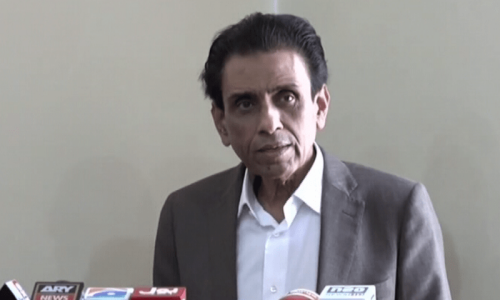KARACHI: Out of more than 10,000 madressahs functioning across the province, the Sindh government has sealed 2,309 seminaries which were unregistered or being run ‘illegally’, while all the remaining 7,724 seminaries have been geo-tagged, it emerged on Friday.
Close to a million students, including 818 foreigners, are enrolled with the seminaries in Sindh, according to officials.
A Sindh home ministry report shows that Special Branch had completed the much-awaited geo-tagging of some 7,724 madressahs. “We have completed the task given to us by the National Counter Terrorism Authority, now the location of every seminary in Sindh is known to us,” said a senior official in the home ministry.
Geo-tagging is the process of digitally identifying and locating places through latitude and longitude coordinates, which enables the authorities to make the required data for any place it desires readily available.
All the remaining 7,724 madressahs across the province geo-tagged
The report said the government sealed 2,309 madressahs across the province for various reasons, as some of them were built on illegally occupied land, others were unregistered, and some others were being run without government permission.
In Karachi, 623 out of total 3,733 madressahs were sealed, while in Hyderabad division, 910 out of total 2,201 madressahs were closed.
Among other parts of the province, 420 out of total 1,536 seminaries in Sukkur, 281 of the 750 madressahs in Mirpurkhas and 75 out of 1,037 seminaries in Larkana division were closed as they were unregistered or being run illegally.
Madressah bill
However, the provincial government has so far remained unable to approve a report that was presented to the senior authorities about the Deeni Madaris Bill, 2016.
While it has been approved by the provincial cabinet for legislation, the Sindh government has failed to approve it so far apparently due to its criticism by various religious groups including some of the banned organisations.
Sharing salient features of the bill, the report said the law would require a no-objection certificate issued by the deputy commissioner concerned along with verification of the ownership of the land where the madressah was established or was proposed to be established.
It added that the law would bind the owners and managers of seminaries to also require a no-objection certificate issued by the superintendent of police and an approved building plan issued by the Sindh Building Control Authority (SBCA). Besides, the report said, they would be required under the proposed law to obtain a certificate issued by the religious affairs ministry that the faculty of the madressah had fulfilled the required criteria to impart religious education.
It needed more than a year to complete the task by the provincial authorities though Islamabad had wanted the relevant authorities to finish the exercise last year.
“Earlier, we thought that the whole exercise would be completed within a month, but that too was ambitious. We have consumed several months,” he added.
Officials in Islamabad said geo-tagging of madressahs was among the key points envisaged under the National Action Plan to focus on and curb all possible routes of terrorism.
Leaning to militancy
Months earlier Sindh had identified and planned a crackdown on some 93 madressahs having ‘leanings to militancy’ in the city. However, the report is silent on the issue as it did not mention if action had been taken against any of them.
Officials said Punjab had completed geo-tagging of madressahs last year after screening over 13,000 seminaries in the province.
Similarly, Khyber Pakhtunkhwa termed 150 madressahs ‘sensitive’ after mapping more than 3,000 seminaries in province, while Balochistan too has completed geo-tagging of its madressahs long ago.
About the same exercise in Sindh, the officials said the province had been faced with completely different challenges than the rest of the country that caused a delay in accomplishing the task.
Published in Dawn December 24th, 2016











































